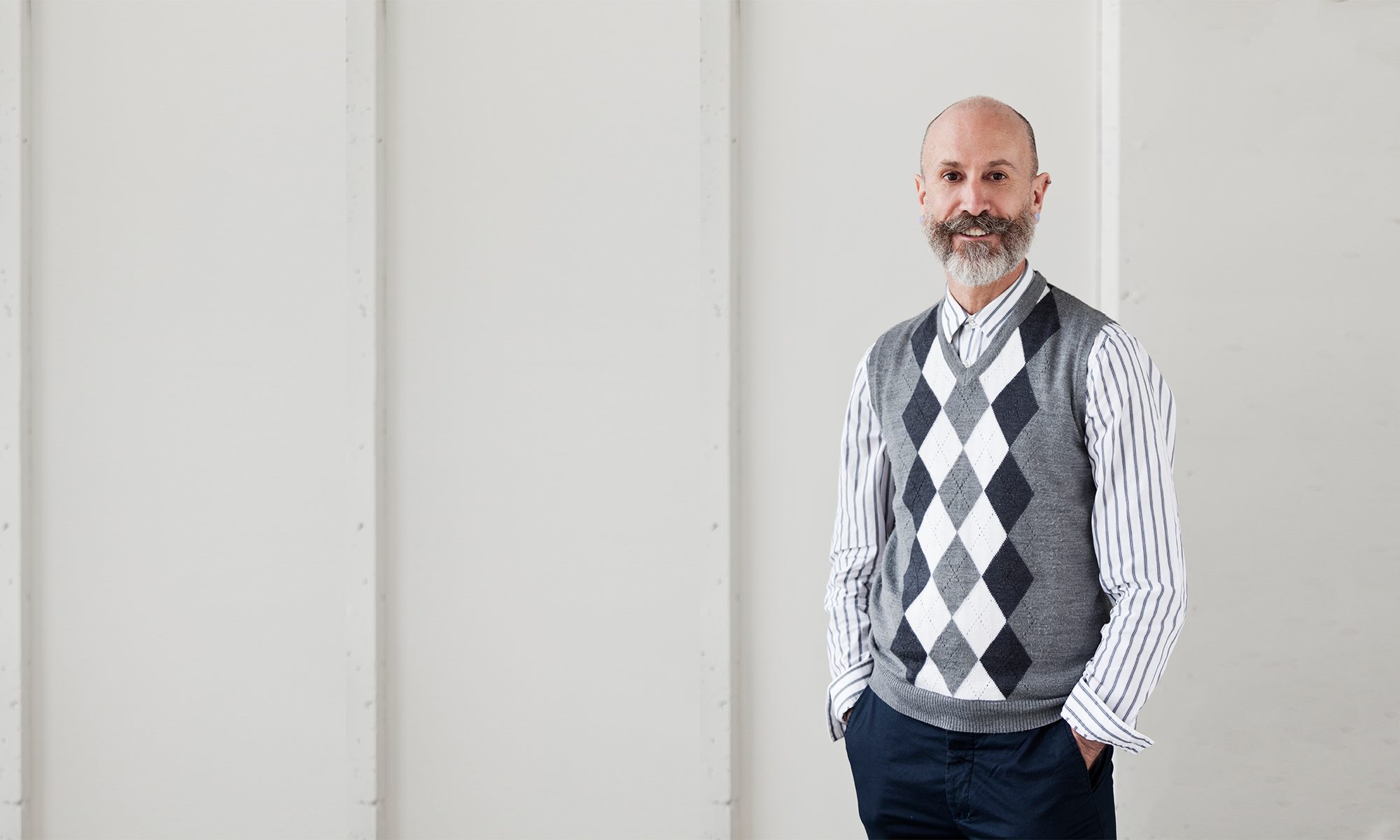Werklund School of Education, University of Calgary
Shared Ownership – In every class I’ve ever taught in the Werklund School of Education, one topic always seems to rise to the surface: classroom management. There’s a noticeable anxiety about what pre-service teachers will do when they arrive in their own classrooms for the first time.
So, what can teachers do to create sustainable, manageable, and productive learning environments? How can teachers navigate the immense topic of classroom management?
My impression is that shared ownership offers teachers and students a philosophy and practical tools to support a flourishing classroom environment. See the following comprehensive document.
My Teaching Approach – As a sessional instructor in the Werklund School of Education (EDUC 450 Diversity in Learning and EDUC 556 Professional Development), my scholarship of learning and teaching connects across various disciplines: educational practices, personal authenticity, and acceptable tension. 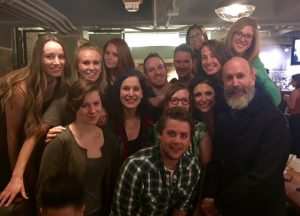
My educational practice focuses on how instructors create meaningful and dynamic teaching and learning environments. Over the past year most particularly, I have drawn upon the works of Carey (How We Learn, 2015) and Brown, Roediger, & McDaniel (Make It Stick, 2014) to inform my educational practice. One of the most salient aspects of these texts is their emphasis on reflection as a cornerstone of effective learning and teaching. In my own scholarship of pedagogic practices, this means constantly asking questions: What went well? What could have gone better? What might I need to incorporate or what strategies might I use next time to get deeper results? In this way, my research into educational practices isn’t simply a matter of making a lesson plan and delivering it. Rather, teaching is a continuously evolving endeavor that builds on what happened and what didn’t happen during the class time.

My research into and scholarship of personal authenticity draws primarily from my three-decade examination of authenticity in teaching relationships. This interest in authenticity surfaced during my teacher apprenticeship with Shinichi Suzuki at the Matsumoto Talent Education Institute from 1983 to 1986 when I realized that mastery of instructional skills and knowledge were not the complete answer to successful teaching and learning. Equally important in becoming an excellent teacher was the need for authenticity – the idea that teachers teach as who they are, rather than the person they might think others want them to be. As an educational scholar, my research into authenticity in teaching relationships builds on Stephen Brookfield’s recognition in The Skillful Teacher that authenticity is one of the top two traits students desire in their teachers (2006, p. 56). My doctoral thesis Authenticity, Teaching Relationships, and Suzuki (2013) revealed that authentic teaching relationships involves the teacher’s understanding, caring for, and accepting of his or her self as the parallel foundation for understanding, caring for, and accepting students. This means that everything I do in the classroom must purposefully align with the three-prong perspective of understanding, caring for, and accepting students.
As a third point, my scholarship of learning and teaching also focuses on what I call acceptable tension – the interruptive conflicts brought on by the misalignment between consonant and dissonant educational events. It’s the idea that teaching and learning includes not only comfortable explorations, but also investigations that push individuals out of their comfort zone, that involve struggle and instability. As Higgins (2011) describes it – being a teacher means that “one must learn to tolerate uncertainty, cherish complexity, and hold rival views together until that tension sparks a question with the power of expanding horizons” (p. 278). For me, acceptable tension provides a reminder that teachers may create instructional momentum by trying out completely unfamiliar and unexplored directions. Teaching/learning as involving acceptable tension is noteworthy, given the cultural tendency to prefer predictability over uncertainty and agreement over conflict. Yet, teaching by its very nature is full of complex, messy, and uncertain realities.
B.Ed. Resources
Carl Rogers” book Freedom to Learn (1994) is an amazing resource. Every teacher should be acquainted with Chapter 12 – Is There Discipline in Person-centered Classrooms? (My apologies for the readability quality.)
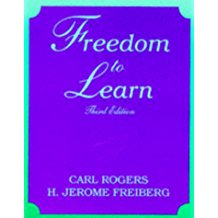
Be sure to check out the following books. The authors have a lot to say about how teachers may influence learning.
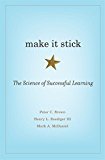

Another valuable resource – the authors take a close look at model schools in Canada. Its seven chapters tackle the topics of beyond the basics, teaching creativity, social-emotional learning, technology, schools of choice, parents, children, and teaching. It’s a must-read for all Canadian teachers. 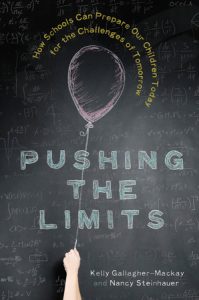
Schulich School of Music, McGill University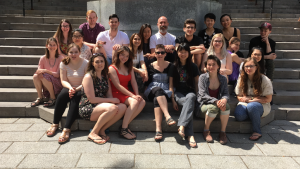
My teaching approach prioritizes two primary aspects: content and process.
Content refers both to the scholarly topics and personal issues that span philosophical, theoretical, social, educational, practical, and individualist layers of exploration and discussion. For example, in MUPG 475 Fundamentals of Vocal and Instrumental Pedagogy, I incorporate such scholarly topics as what music learning looks like, democratic and historic perspectives of music teaching, and the difference between teaching students and teaching repertoire. From a personal issues perspective, I incorporate such topics as our relation with music and the interactions between teachers and parents. I use this multilayered focus on content to shed light on how effective music studio teachers intentionally draw from scholarly musical knowledge and skills in combination with their own personal values and beliefs as the spark to students’ musical flame.
Process refers to the various ways I engage students’ active participation in the learning process. This means genuinely getting to know students, paying attention to what they want to get out of the course, and providing generous space for questioning and reflection. I incorporate frequent small group discussions so students have ample opportunity to voice their academic and personal viewpoints. My goal is to use students’ scholarly and personal interests as the foundation for meaningfully supporting and challenging their developing pedagogic knowledge and skills.
Why this teaching approach? I intentionally integrate  content and process because I value their positive impact on what students consistently take away from my courses. On one side, I diligently present scholarly content because without knowledgeable insight, I worry that many university students may run the risk of unknowingly perpetuating their own autobiographical “good and bad” experiences of having been taught. On another side, without meaningful processes in my teaching approach, there’s a risk that university students will treat scholarly content as something impractical and irrelevant with no real life application outside academia. By integrating content and process in my teaching approach, I set up an instructional environment that encourages students to become personally invested in their own studies, to identify their own educational strengths and gaps, and most importantly to critically evaluate unexplored educational ideas and hold onto challenging pedagogical perspectives until they trigger new knowledge.
content and process because I value their positive impact on what students consistently take away from my courses. On one side, I diligently present scholarly content because without knowledgeable insight, I worry that many university students may run the risk of unknowingly perpetuating their own autobiographical “good and bad” experiences of having been taught. On another side, without meaningful processes in my teaching approach, there’s a risk that university students will treat scholarly content as something impractical and irrelevant with no real life application outside academia. By integrating content and process in my teaching approach, I set up an instructional environment that encourages students to become personally invested in their own studies, to identify their own educational strengths and gaps, and most importantly to critically evaluate unexplored educational ideas and hold onto challenging pedagogical perspectives until they trigger new knowledge.
My evolving teaching approach has been influenced by my own curiosity and the input of colleagues over forty years. Beginning in Japan during the 1980s, I came to understand that mastery of instructional knowledge and skills (content) were not the complete answer to successful teaching. Equally important was the need for authenticity – the idea of teaching as the person I am, rather than the person I think others want me to be (process). Working with music teachers and academic colleagues across Canada, USA, New Zealand, and Australia for three decades inspired me to develop an instructional framework and language that focuses on informing (content) and guiding (process) without controlling other’s thought processes and teaching practices. Finally beginning in 2010 at the U of Calgary Werklund School of Education and in 2016 McGill’s Shulich School of Music, as scholar and instructor I work to improve my teaching by exploring the multilayered and intersecting dimensions involved in teaching subject matter (content) and teaching students (process).
Student Evaluations from MUPG 475
MUPG 475 Fundamentals of Vocal and Instrumental Pedagogy Course Outline
Suzuki Piano Teacher Training
I have been a Suzuki Piano Teacher Trainer since 1987. My goal is to present teachers with a comprehensive approach to Suzuki Piano teaching by being attentive to the following:
- Suzuki Method philosophy and methodology. Understanding these two aspects is important for teachers, not in some kind of dogmatic or authoritarian way, but as a secure, flexible, and fertile foundation for music teaching. My courses are all about helping teachers make meaningful connections between their own experiences of teaching and what the Suzuki Method has to offer.
- Students’ interests. Students are autonomous learners who value exploration, creation, and mastery. Consequently, effective teaching necessarily goes beyond passive student repetition of performance drills. I present courses that meticulously examine what’s involved in engaging students as active participants in their own learning.
- Teachers’ voices. Teachers come with various musical backgrounds and perspectives. They bring immense personal, professional, musical, and instructional experience to their own learning. They have things to share. My courses recognize the value of teachers’ voices, inviting participants to contribute and stimulate a welcoming environment of discussions and reflections.
- Having worked with hundreds of students, parents, and teachers across Canada, USA, Japan, Australia, and New Zealand, I openly share my vast knowledge and experience of teaching. As an active music education scholar, I draw from current research to inform my teaching approach. My scholarly publications have received international recognition.
I offer courses of special interest for a broad range of pianists including university students, experienced Suzuki Piano teachers, and international piano teachers.
Suzuki Piano Teacher Training Feedback
Course Offerings
Every Child Can – TBA
Every Child Can is an introduction to Dr. Suzuki’s philosophy and its application to Suzuki education. For parents, teachers, prospective teachers and others, this course provides an inspiring, in-depth look at the Suzuki approach to teaching and learning. In addition to exploring the elements of the Suzuki approach and its far-reaching goals, it includes an introduction to learning styles, history of the development of Suzuki education, the role of parents, the importance of Suzuki pedagogical training, and an overview of the Suzuki Association of the America’s role in supporting teachers and parents. No entrance requirements.
Suzuki Piano Volume 1 – TBA
The goal of the Suzuki Piano Volume 1 course is to prepare teachers to succeed in both pedagogic and philosophical aspects of Suzuki Piano teaching. This course explores Suzuki Piano Volume 1 repertoire as foundation for the development of independent and authentic student musicians. Topics in this course include: teachers’ own philosophy of teaching, tonalization study, learning to play by ear, Mother Tongue principle, prep class structure, piano technique and tone production, group class formats, philosophy of education, effective communication skills, ability to accurately evaluate, knowledge of child development, working with parents as well as excellent personal and professional management skills. By linking teachers’ teaching philosophy to the various aspects of Suzuki Piano Volume 1 teaching, teachers broaden their understanding and gain practical insight into teaching as a multilayered endeavor.
Entrance requirements: completion of Every Child Can. For audition requirements, see the Suzuki Association of the Americas website regarding audition preparation/evaluation criteria: https://suzukiassociation.org/teachers/training/
